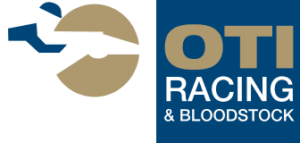OTI Director Terry Henderson’s articles will feature in the weekly edition of Winning Post throughout spring. Below is the first edition from Saturday, September 7.
It has perplexed me for years that, despite the relative affluence of the industry, our racing authorities spend so little money helping trainers to be equipped to start a training business, let alone manage one. There are few more demanding jobs than being a horse trainer. Few management tasks have such a plethora of responsibilities to be faced on a daily basis.
Many can prepare a horse to race well. It’s a huge leap to prepare a stable of horses when one considers the challenge of attracting and keeping quality staff, the need to buy and sell stock and having the nous to run a business. That’s before they operate on a seven-day week in the process of managing owner expectations.
To the industry’s credit, we have developed superb jockey training programs, spent millions on their training equipment and provided them with considerable assistance to enable successful and healthy riding careers. It’s little wonder that, as a group, Australia’s jockeys are considered world class.
By contrast, within 12 months a stable hand in our country, with minimal mentoring or training (equine or business), can progress to owning and running a sizeable business. He or she could control scores of horses, employ stable and office staff and commit to long-term finance arrangements. The passing of an industry exam to the satisfaction of the stewards is all that will have been required. Should the trainer be successful at the track, the business can be allowed to grow to any size the trainer may wish without any constraint by racing authorities.
There’s little wonder problems arise in Australia’s training ranks with integrity (cheating), the overuse of vets, and personal health and financial worries, especially over payments to horse sales houses. Such issues do not exist to the same level in those racing jurisdictions where there are either well-recognised conventions or formal training programs.
Over the years, many racing administrators have argued that a trainer is a sole trader who needs to ensure that he or she has the skills to run a business. For me, that’s a copout. It dismisses the impact trainers have on racing’s image, respect and appeal to the broader public.
In Victoria, the image damage from trainers’ indiscretions has been immense. It is now more than six months since Darren Weir fell afoul of the rules of racing. Robert Smerdon went before him. They were two of the biggest names in racing and our industry as a whole took a battering in the public arena. Few in our industry will argue that, thanks to racing’s share of betting revenue (primarily the TAB), revenue is healthy. It’s wise management that, in such times, there is an investment in the long-term viability of the business.
There is no more important area for investment, in any industry, than in key people. In our industry, jockeys and trainers are the two most important groups that will most influence racing’s success and sustainability. If there is genuine concern that racing be presented as a respectable sport/industry in future, authorities cannot afford to abdicate their responsibility for improving the training profession. We know from experience that the “stick” approach alone does not foster adherence to the rules. Education and mentoring in relevant, time-friendly ways is the only way to equip our trainers with the skills to develop their careers in a manner of which they and our industry can be truly proud.
